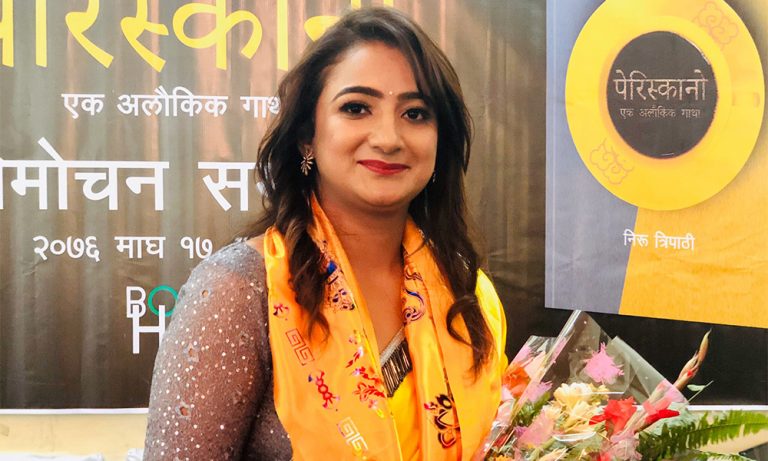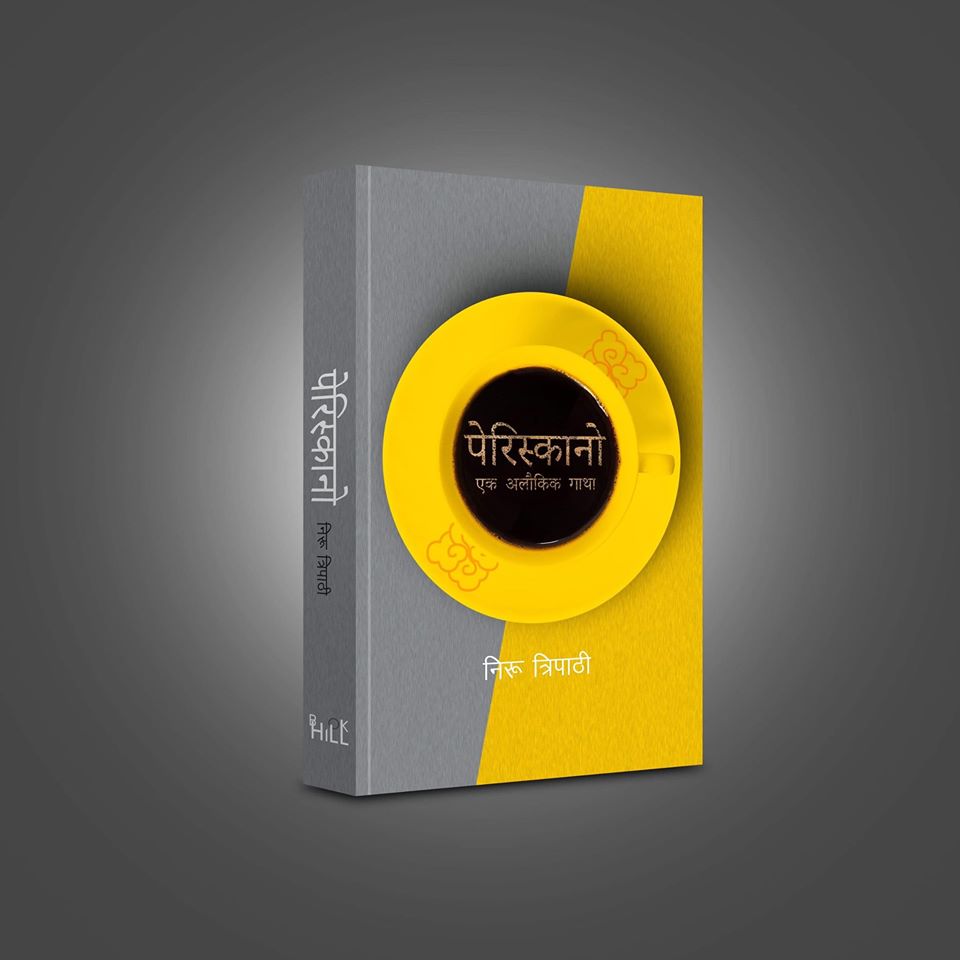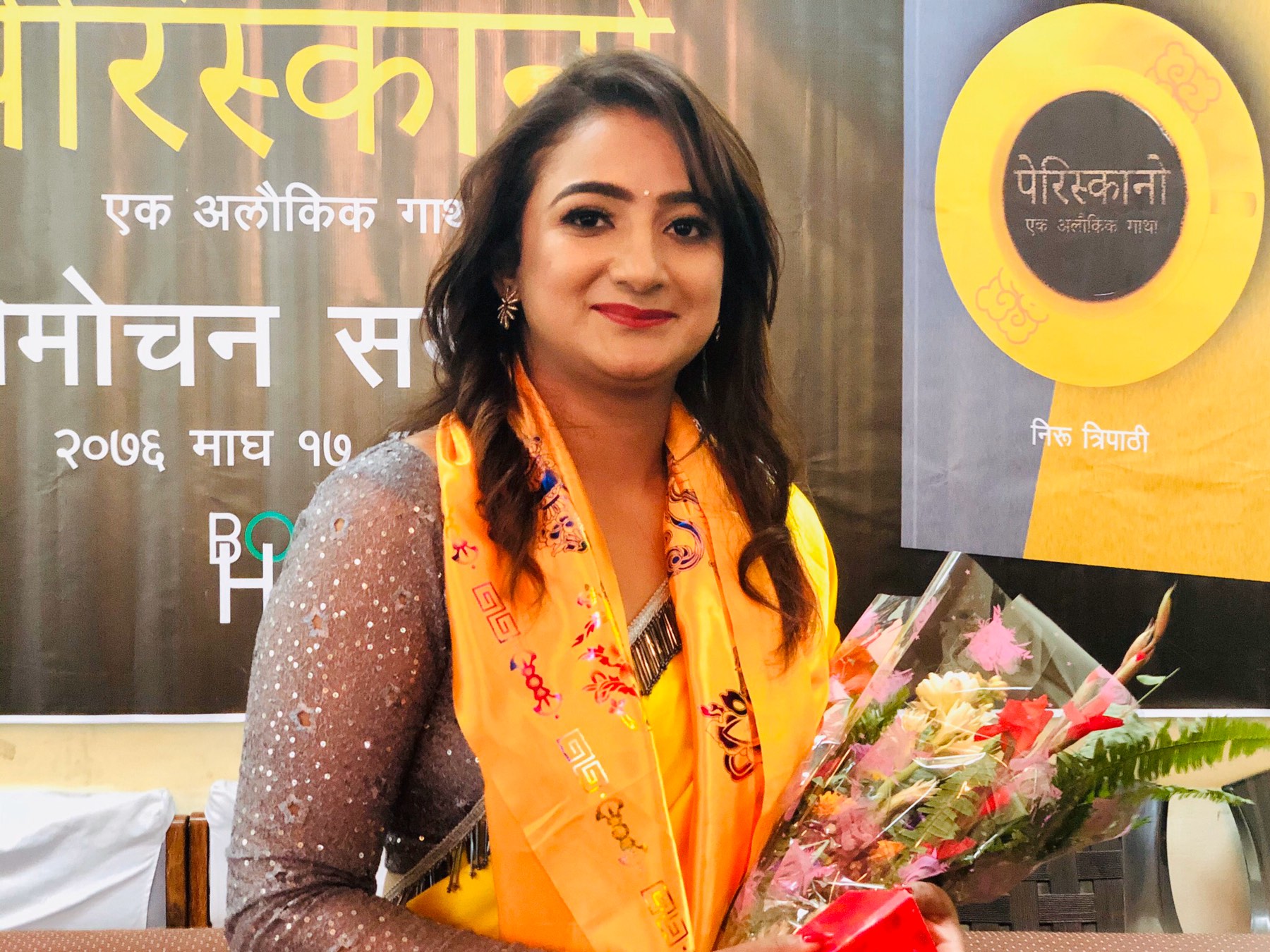
Be it within the journalist fraternity or within the Nepali community circles in Australia – the name Niru Tripathi is familiar. A person keeping herself occupied with maintaining a full time work schedule, attending community events, writing articles for Nepali and Australian publications, along with an active social life – we were quite surprised when we heard that she found time to write, complete, and publish her book.
However, that is Niru Tripathi, aka Dev Lalita as she is popularly known as – always following her passion.
In a warm winter afternoon, we met with her at Evoke Café, Jhamsikhel – days ahead of her book launch. Smiling she appeared and sat with us; the first question I ask her is one that has been intriguing me since I saw the book cover.
Why Perisscano? I ask her about the title of the book, quite unsure of its meaning or inspiration.
“Paris, one of the main protagonists of the novel loves coffee – he actually is able to brew a special kind of coffee, unique only to himself”, Niru Tripathi beams. “Therefore, the narrator gives him a pet name ‘Perisscano’, just like Americano”.
“There are further details to the name, something that can be explored with the book, therefore I would rather encourage our readers to read the book to explore the dynamics of the name”, she adds.

Delving into the theme of the book, she says the book explores three themes –
- The growth of a relationship:
Starting from a teenage love story, the book explores a theme which we have all experienced – love. From a teenager’s experience with a relationship, and all the excitement it brings, the protagonists share a journey which teaches them both important lessons in life. Both grow as the book journeys forward.
- The life of a migrant:
The narrator has moved to Melbourne, Australia – while the story may be hers, the theme draws inspiration from several issues an aspiring migrant is faced with. The daily struggles of saving money for her education, to pay her bills; finding time to balance between her social and professional aspects, and several other issues, which many migrants can relate with.
- Racism:
The book also explores the dynamics of racism – direct and indirect incidents of racial stereotyping.
Asking about Niru’s inspiration to write the particular book, she said the books, its characters and incidents source inspiration from multiple experiences – working at the Consulate Office of Nepal to Victoria, she listens to the stories of people from various walks of life which enabled her to characterize them. From Australia’s Melbourne to Nepal’s Namche – the book takes us through different places, stirring the soul as its characters learn and grow from their own experiences.
Niru also says she had to research extensively for the book – she reached out to psychiatrists, to other authors, and to travelers. She had to put herself in the shoes of different characters – “I am a girl; I had to put myself in the shoes of a white male (Paris), to portray a character which would not be false. That was a huge challenge, but I enjoyed the experience”, she says.
Asking about how she found time to finish a book despite her hectic schedule, she says, she literally had to steal time from her sleep. She also iterates a frustration which is common to creative people – ‘some days the inspiration is free flowing, and some days the words don’t come out at all. The inspiration would come in strange places, in the middle of a meeting, while in the toilet – and all I had to do was sit and write down my emotions”, she says.
Speaking about her personal life, she believes ‘freedom to pursue her passion’ was the best gift her parents to give her. From a young age, when her inclination towards literature was discovered by her school and her family, she was always encouraged towards the same. “May be because I was the youngest daughter, my father was very liberal with me, which was very influential for me to follow my passion”, she says.
Interestingly, the novel is not Niru’s first book – she had written a book titled ‘Anurag’ when she was young, its title ‘Anurag’. Unfortunately, Niru did not have a copy of the manuscript, and the person she shared her original manuscript with lost the book.
Niru was inspired to write the collection after reading B P Koirala – her first book and her inspiration to write. While she believes all writers are good, her other favourite writers are Paulo Coelho, Chetan Bhagat and Arundhati Roy.
Asking of her interests in life, Niru Tripathi says she loves travelling – and more so alone because of the new experiences. She also loves watching reading (naturally) and watching films.
Concluding our coffee-conversation, I asked her about any inspiring words for other aspiring writers. “Do it”, she says confidently. “Not having time is just an excuse – I thought the same, however, took out the time. You can do it too”, she adds.
She also encourages the Nepali community in Australia to write – especially women. “While I encourage both genders to write, I would be happier if women penned their stories”, she says and we cannot agree less.
About Niru Tripathi:

Niru Tripathi, popularly known as Dev Lalita, is a multi-faceted personality. She is an active journalist; her articles have been published in Nepal and Australia. She is an avid communication person; she works with the Consulate Office of Nepal to Victoria as its Public Relations Manager. She is also an active community member of the Nepali Diaspora in Australia – she was awarded the Media Personality of the Year 2015 by the Non-Resident Nepalese Association Australia. She is also the recipient of the Victoria’s Multicultural Awards for Excellence in the Media category in 2016. Born in Malekhu, Nepal, she currently lives in Melbourne, Australia. She has recently published her first book ‘Perisscano’.




